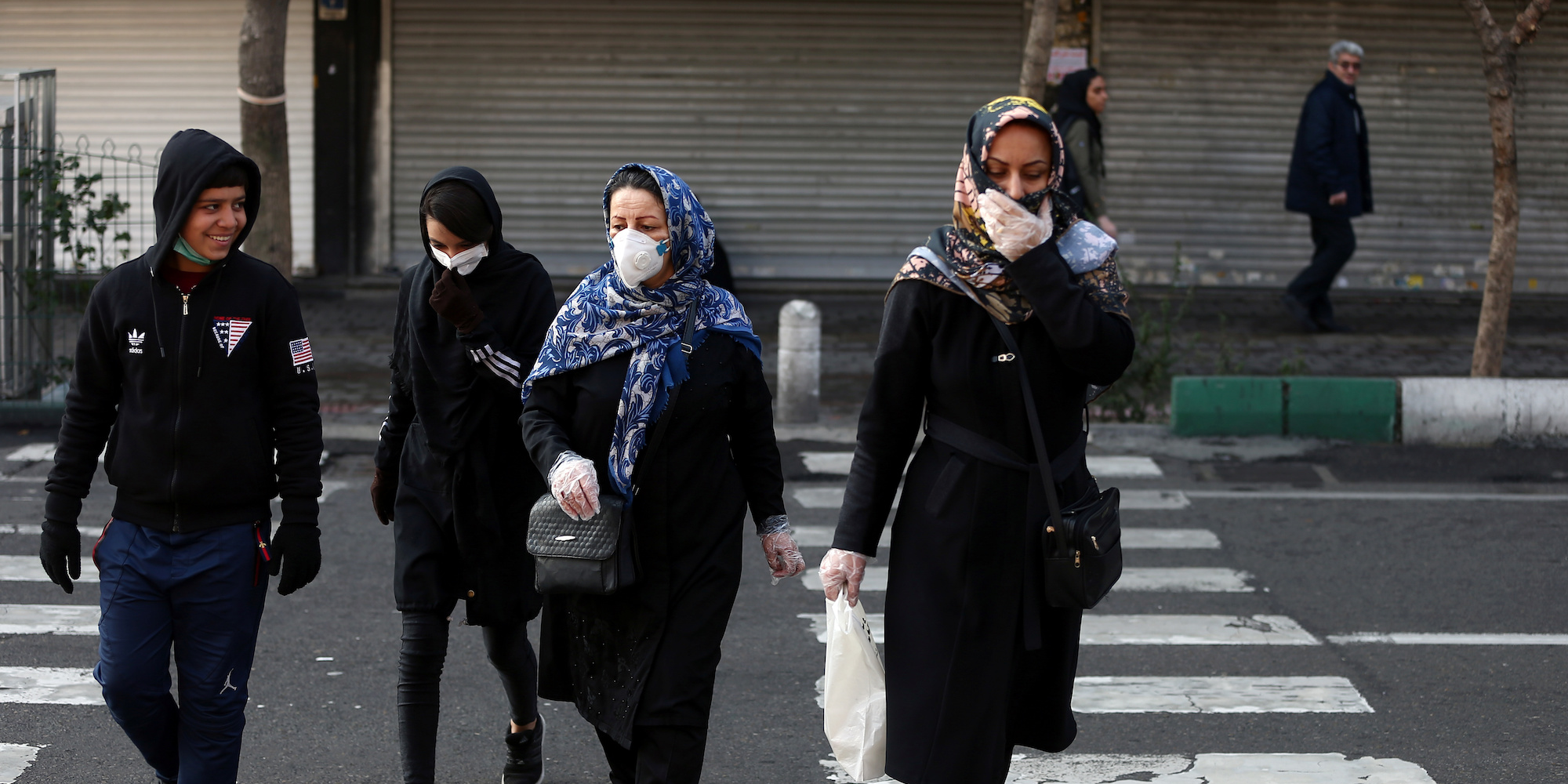- Eight percent of Iran’s parliament – 23 out of 290 members – have been infected with the coronavirus.
- At least seven government officials also have it, including one of Iran’s vice presidents, and a key adviser to Ayatollah Ali Khamenei has died from the virus.
- The government’s efforts to suppress information about the scale of the outbreak has exacerbated its impact, and experts warn this is a cautionary tale for the rest of the world.
- Visit Business Insider’s homepage for more stories.
Iran is descending into chaos amid the coronavirus outbreak, with the government seemingly incapable of handling the scale of the crisis and going as far as to threaten the death penalty to those who hoard necessary materials or equipment.
At least 77 people have died in Iran from the virus so far, according to the official death toll, though the number could be much higher because of the government’s apparent efforts to hide the extent of the outbreak. Iran has over 2,300 confirmed cases.
A BBC News report, which cited hospital sources, on Friday said the death toll from coronavirus in Iran was actually 210.
As of Tuesday, 8% of Iran’s parliament has been infected, according to CNN, along with Iran’s deputy health minister and one of the country’s vice presidents. And a key adviser to Ayatollah Ali Khamenei, Mohammad Mirmohammadi, has died from it.
In total, at least 23 members of the 290-member Iranian parliament have tested positive for the novel coronavirus, CNN reported. The parliament has been suspended indefinitely, and lawmakers have been asked to stop meeting with the public.
Iran appears to have the highest number of government officials infected with the coronavirus. At least seven Iranian officials, including Vice President Masoumeh Ebtekar, have tested positive for coronavirus.
Meanwhile, Iran has temporarily released 54,000 prisoners to combat the spread of COVID-19, the respiratory disease caused by the virus, BBC News reported.
The coronavirus has caused such a stir in Iran that people are not leaving their homes, which has apparently eliminated pollution from the skies of the capital, Tehran.
Coronavirus has cleared the pollution in Tehran as people stay home. Blue skies. #Iran https://t.co/Lol9PinTsQ
— Farnaz Fassihi (@farnazfassihi) March 3, 2020
Though the novel coronavirus originated in Wuhan, China, it appears that Iran is the new epicenter. The first coronavirus case in New York City was a woman who had recently been traveling in Iran.
The Trump administration on Saturday announced it was expanding a travel ban on Iran to any foreign nationals who had been in the country over the past 14 days.
The US State Department has offered to help Iran with the outbreak, but the Iranian government has rejected the overtures.
Experts on public health and democracy have said that Iran's handling of the coronavirus, and the lack of transparency surrounding the outbreak, is a cautionary tale for the rest of the world.
"In China and Iran, both experiencing major outbreaks, early action has been undermined by efforts to halt and control free flow of information," which has limited the public's understanding and willingness to "share vital information with officials," Matthew Kavanagh, an assistant professor of global health at Georgetown University, told Insider last week.

